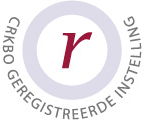Moving up or moving on
Are you thinking of changing your career or trying to move up? Do you not have a clue as to what to choose? Or do you have a specific direction you want to go, but do you not know how to go about it? Then this career training is what you need!
In this training we apply a 5-phase model:
1. Who am I? With the aid of tests and excercises we look at your personal qualities. What are your strongest personality traits? What is your style of communication? How do you function in teams? How do you deal with difficult situations, stress, and conflicts?
2. What do I want? What gives you satisfaction in your work? Is it working with people? Getting quick results? Or is autonomy your number one requirement? Do you need to be creative in your work? In this phase we analyse what makes you happy in your work, and we create an ideal picture of your current or future job.
3. What are my competencies? Based on your CV and experience we analyse your competencies. If you should aspire a total career change, we focus on transferable competencies, meaning the things that you have learned that are of use in any other job. We will also determine what you are at present unable to do but would like to learn, which defines your need for personal development and education.
4. How can I find that job? What kind of jobs fulfill your wishes and needs, as defined in the before phases? Where can we find such jobs in databanks and adverts?
5. How can I get that job? In the final phase, we help you to write job application letters, and train you to ‘sell yourself’ well in job interviews, as well as how to negotiate a good salary.
The participants will actively reflect and search and make choices inbetween the training days. If needed, ElroyCOM offers additional personal coaching during or after the training.

